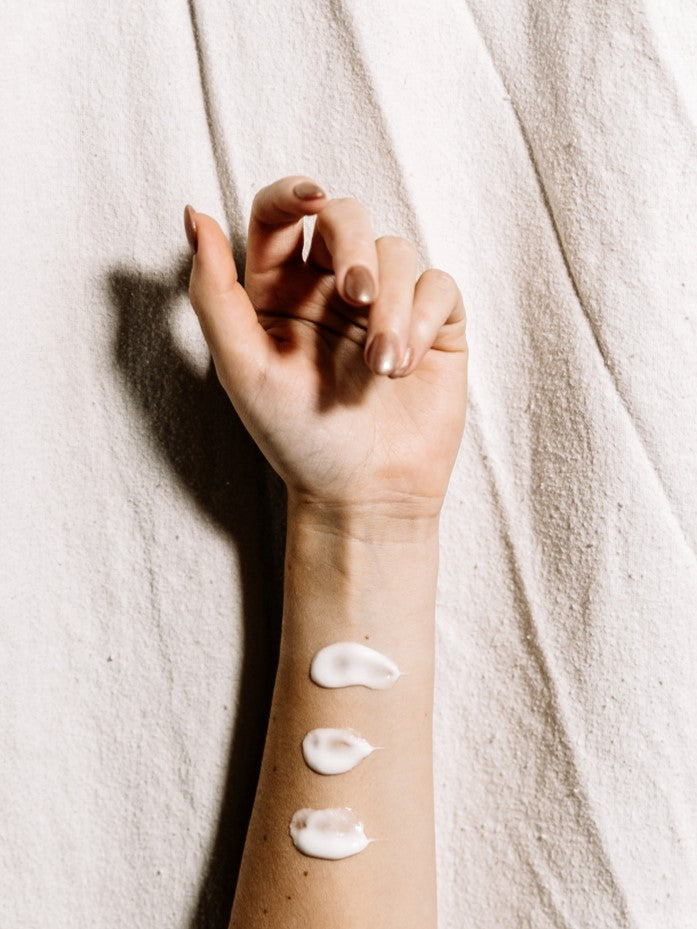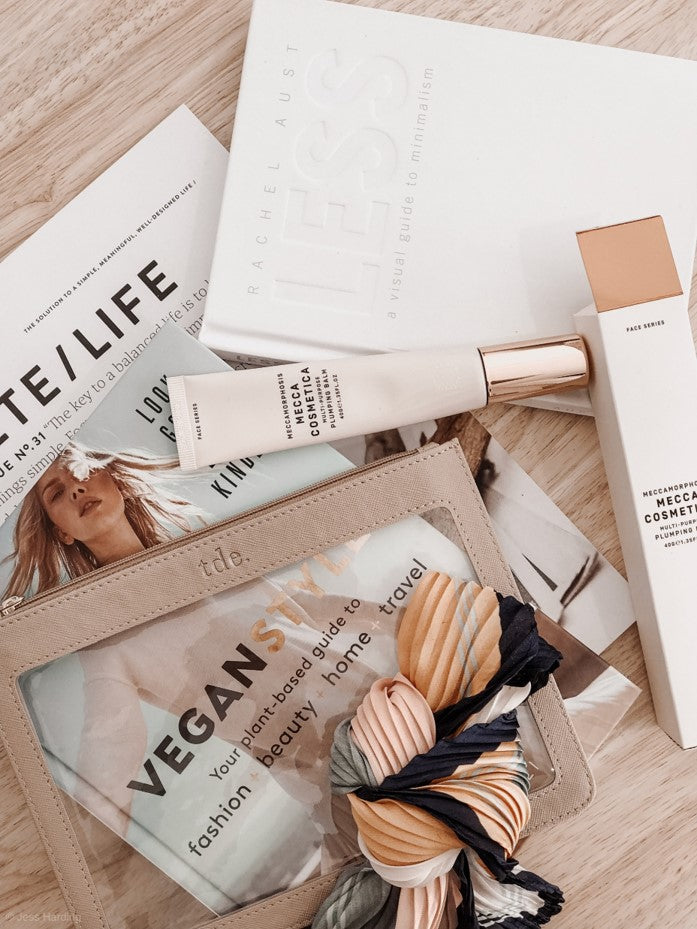Congratulations on your pregnancy journey! The first trimester is an exciting time filled with wonder and anticipation. It's also a critical period for laying the foundation for a healthy pregnancy. One of the best ways to do this is by ensuring that your lifestyle supports the growth and development of your baby while minimizing any potential risks. In this blog post, we'll explore five essential areas to focus on during the first trimester to create a safe and nurturing environment for you and your little one. The first trimester is all about supporting your endocrine system and detox pathways by removing what is toxic or harmful in your lifestyle and replacing those things with better or benign alternatives. Below are the top 5 areas to focus on:
1. Invest in Quality Prenatal Supplements
During pregnancy, it's essential to ensure that the supplements you're taking are safe and free from harmful substances. Many supplements may contain heavy metals such as lead, mercury, and arsenic, which can be harmful to both you and your baby's health.
Opt for supplements that are certified heavy metal-free, undergo third-party testing for purity, and contain clean ingredients. This ensures that you're providing your body and baby with the nutrients they need without any added risks. We encourage you to email the brand of supplements you are buying and ask for them to share the 3rd party test results with you. If they refuse to be transparent, then there is your answer.
Shop Sakara Foundation Prenatal

2. Wear Chemical and Micro-plastic Free Clothing
Wearing chemical and micro-plastic free clothing is crucial during pregnancy for several reasons. Firstly, many conventional clothing items are manufactured using synthetic materials and treated with various chemicals during production. These chemicals, such as formaldehyde, phthalates, and flame retardants, can be absorbed through the skin and may pose risks to both maternal and fetal health.
Research has shown that exposure to certain chemicals commonly found in clothing manufacturing processes may be linked to adverse pregnancy outcomes, including preterm birth and low birth weight.
Furthermore, synthetic fabrics like polyester, nylon, and acrylic are notorious for shedding microplastics during wear and washing. These microplastics can enter the air, water, and ultimately, the food chain, posing potential health risks to both humans and the environment. While the full extent of the health impacts of microplastic exposure is still being studied, there is growing concern about its effects on reproductive health and development.
Choosing clothing made from natural, organic fibers such as cotton, linen, and hemp helps minimize exposure to these harmful substances. Organic fabrics are cultivated without the use of synthetic pesticides, herbicides, or fertilizers, reducing the risk of chemical residues in the final product. Additionally, natural fibers are biodegradable and less likely to shed microplastics, making them a safer and more sustainable choice for pregnant women.
By opting for chemical and micro-plastic free clothing, pregnant women can protect themselves and their babies from potential harm while promoting overall well-being. Making informed choices about the clothing we wear is an essential aspect of creating a healthy and nurturing environment for both maternal and fetal health during pregnancy.
Shop Pact Organic Maternity Collection

3. Drink Filtered Water and Shower in Filtered Water
Drinking filtered water and showering in filtered water is especially important for pregnant women due to the potential risks associated with consuming and being exposed to contaminants commonly found in tap water. Tap water often contains a variety of pollutants, including heavy metals, pesticides, industrial chemicals, and microbial contaminants, which can pose serious health risks, particularly during pregnancy.
One of the primary concerns with unfiltered tap water is the presence of heavy metals such as lead, arsenic, and mercury. These metals can leach into the water supply from corroded pipes or industrial runoff and may have detrimental effects on both maternal and fetal health. Lead exposure, for example, has been linked to miscarriage, preterm birth, and developmental delays in children. Similarly, arsenic exposure during pregnancy has been associated with an increased risk of birth defects and neurological problems in offspring.
Furthermore, tap water may contain disinfection byproducts (DBPs) formed when chlorine or chloramine, commonly used to disinfect water, react with organic matter. DBPs have been linked to adverse pregnancy outcomes, including miscarriage and low birth weight. Additionally, exposure to these chemicals during pregnancy may increase the risk of certain cancers and reproductive disorders in both mothers and their children.
Installing a high-quality water filtration system for both drinking water and shower water helps remove contaminants and chemicals, providing pregnant women with cleaner and safer water for consumption and bathing. By investing in a water filtration system, pregnant women can minimize their exposure to potentially harmful substances, reduce the risk of adverse pregnancy outcomes, and promote the health and well-being of both themselves and their babies.
In summary, drinking filtered water and showering in filtered water is essential for pregnant women to mitigate the risks associated with consuming and being exposed to contaminants commonly found in tap water. By taking proactive measures to ensure the quality and safety of their water supply, pregnant women can safeguard their health and the health of their developing babies throughout pregnancy.
Shop the Jolie Shower Head Water Filter

Shop the AquaTru Countertop Reverse Osmosis Water Filter
4. Conduct a Cosmetic and Personal Care Audit
Conducting a cosmetic and personal care audit is crucial for pregnant women as many conventional beauty and personal care products contain a plethora of potentially harmful chemicals that can pose risks to maternal and fetal health.
During pregnancy, hormonal fluctuations make women more susceptible to the adverse effects of certain chemicals commonly found in cosmetics and personal care products. These chemicals can disrupt hormonal balance, interfere with fetal development, and increase the risk of pregnancy complications. One group of chemicals of concern is endocrine-disrupting chemicals (EDCs), which can mimic or interfere with the body's hormones, leading to disruptions in reproductive function and fetal development. Common EDCs found in cosmetics and personal care products include phthalates, parabens, and synthetic fragrances. Research has linked exposure to these chemicals during pregnancy to adverse outcomes such as miscarriage, preterm birth, and developmental abnormalities in offspring.
Furthermore, certain cosmetic ingredients, such as retinoids, salicylic acid, and formaldehyde, are known teratogens, meaning they can cause birth defects or developmental abnormalities when exposed to a developing fetus. Pregnant women must be vigilant about avoiding these ingredients in their beauty and personal care products to minimize the risk of harm to their babies. Opting for safer alternatives that are free from harmful chemicals is essential during pregnancy.
Look for products labeled as pregnancy-safe or made with natural, non-toxic ingredients such as botanical extracts, essential oils, and minerals. Choosing products that are free from synthetic fragrances, parabens, phthalates, and other potentially harmful additives reduces the risk of exposure to these harmful substances and helps protect both maternal and fetal health. Taking the time to audit your beauty and personal care products and replace them with safer alternatives is an essential step in creating a healthy and nurturing environment for both you and your baby during pregnancy.
By prioritizing the use of clean, non-toxic products, pregnant women can minimize their exposure to harmful chemicals and support the optimal development and well-being of their babies.
Use Credo Beauty to swap out conventional cosmetics and skincare products.
Shop Marie Veronique Pregnancy-Safe Skincare

Shop RMS Beauty Clean Cosmetics

5. Conduct a Food/Kitchen Audit
Conducting a food and kitchen audit is vital for pregnant women as the foods they consume directly impact both maternal health and fetal development. During pregnancy, the fetus is particularly vulnerable to the effects of environmental toxins and chemicals present in food, which can disrupt hormonal balance and interfere with normal development. Conducting a thorough audit of your kitchen and food choices allows pregnant women to identify and eliminate potential sources of harm, ensuring a safe and healthy environment for both themselves and their babies.
One of the primary concerns with food during pregnancy is exposure to endocrine-disrupting chemicals (EDCs), which can interfere with the body's hormonal systems and have adverse effects on reproductive health and fetal development. EDCs can be found in a variety of foods, including conventionally grown fruits and vegetables treated with pesticides, as well as animal products containing hormones or antibiotics. Additionally, certain food packaging materials, such as plastics, can leach harmful chemicals into food, further increasing the risk of exposure to EDCs.
Choosing organic, whole foods whenever possible is essential during pregnancy to minimize exposure to pesticides, hormones, and other potentially harmful additives. Organic produce is grown without synthetic pesticides or fertilizers, reducing the risk of pesticide residues in food. Similarly, opting for organic, grass-fed meats and dairy products helps avoid exposure to hormones and antibiotics commonly used in conventional animal agriculture.
Minimizing the intake of processed foods and items packaged in plastic is also important for pregnant women to reduce exposure to harmful chemicals such as bisphenol A (BPA) and phthalates. These chemicals can leach from plastic packaging into food, especially when heated or exposed to acidic foods, posing risks to maternal and fetal health. Choosing fresh, whole foods and avoiding processed and packaged foods whenever possible helps mitigate this risk and supports overall health during pregnancy.
By conducting a food and kitchen audit and making informed choices about food and food packaging, pregnant women can minimize their exposure to harmful chemicals and create a healthy and nurturing environment for both themselves and their babies. Prioritizing organic, whole foods and avoiding processed and packaged foods reduces the risk of adverse pregnancy outcomes and supports the optimal development and well-being of the baby.
As you embark on this incredible journey of pregnancy, remember that every choice you make has the potential to impact both you and your baby. By focusing on these five essential areas during the first trimester, you're laying a solid foundation for a healthy and happy pregnancy. Embrace these changes as part of your journey towards motherhood, knowing that you're taking proactive steps to create a safe and nurturing environment for your little one to thrive. Here's to a healthy and joyful pregnancy!












